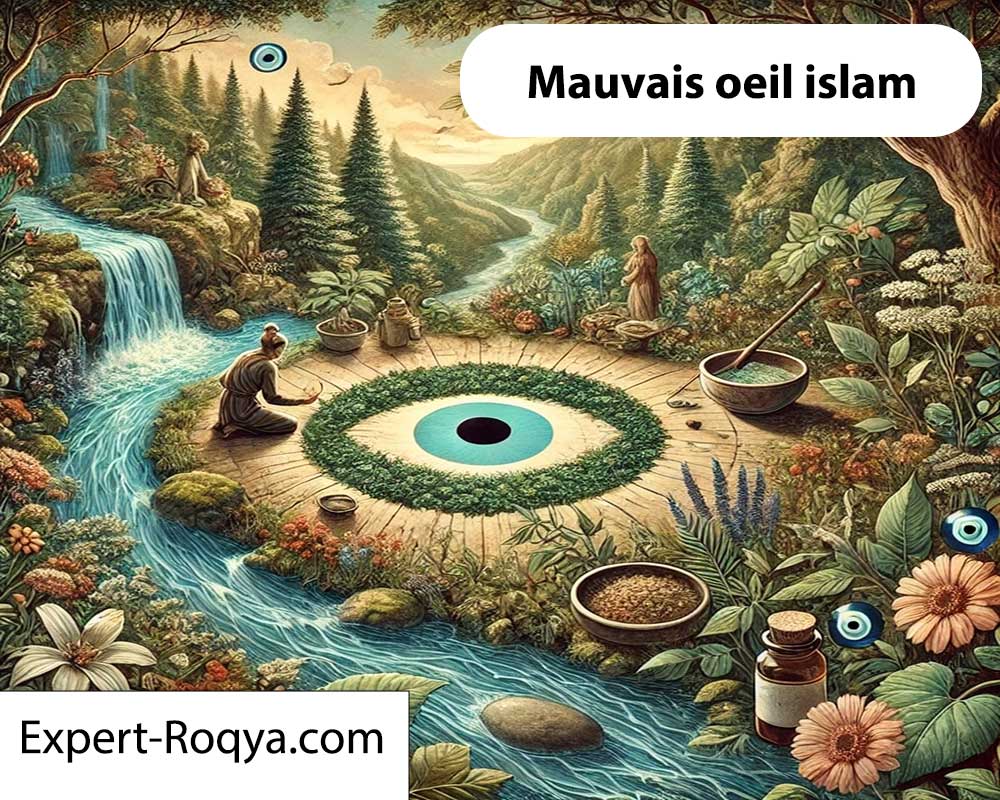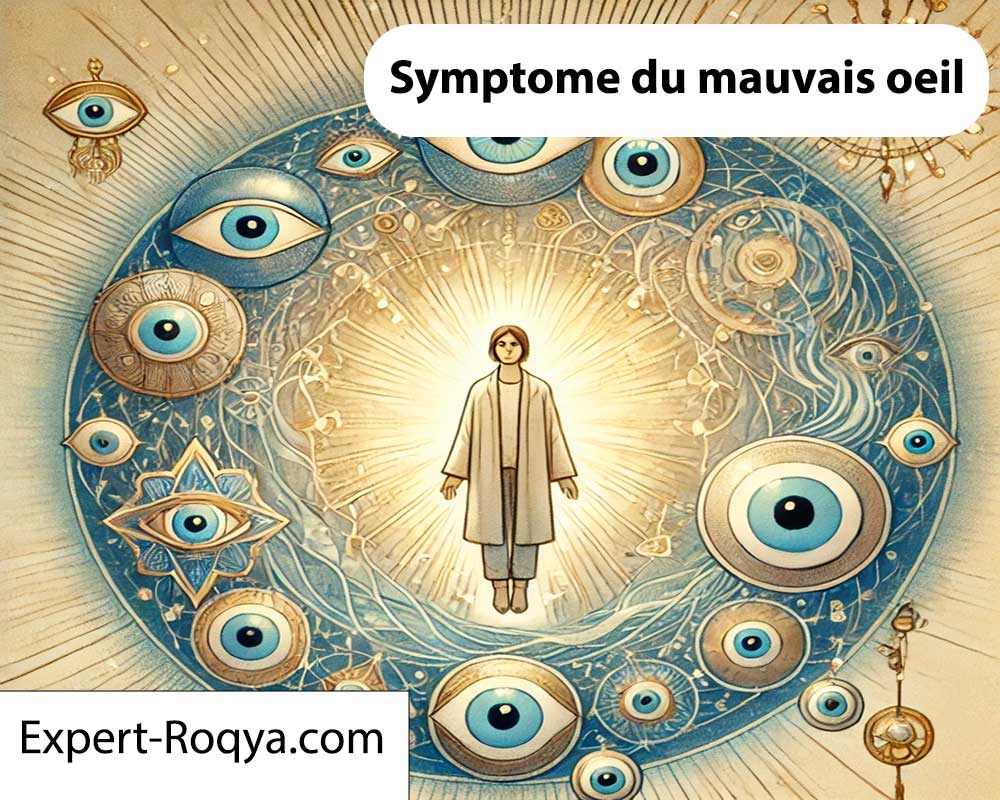Understanding Mauvaise Oeil In Islam: A Comprehensive Guide
Have you ever heard of "mauvaise oeil" and wondered what it means in the context of Islam? Well, buckle up because we're diving deep into this fascinating topic. Mauvaise oeil, which translates to "evil eye" in French, holds significant meaning in Islamic teachings and culture. It's not just a superstition; it's a concept deeply rooted in faith and tradition.
Let's start with the basics. The idea of mauvaise oeil, or the evil eye, isn't exclusive to Islam but has been adapted and interpreted within the Islamic framework. In Islamic belief, the evil eye is a real phenomenon where someone's admiration or envy can harm another person. This isn't just about bad vibes; it's about understanding the spiritual implications and how to protect oneself.
So why are we talking about this today? Because understanding mauvaise oeil in Islam is crucial for anyone seeking to deepen their knowledge of the faith. Whether you're a Muslim or simply curious about Islamic teachings, this article will shed light on the concept and its significance in daily life. Let's get started, shall we?
What is Mauvaise Oeil in Islam?
Mauvaise oeil, often referred to as the evil eye, is a concept that many Muslims take seriously. It's the belief that someone's gaze, filled with envy or admiration, can bring harm or misfortune to the person being looked at. In Islam, this isn't just a cultural superstition but is backed by religious texts and teachings.
The Quran and Hadith both mention the evil eye, emphasizing the importance of protection and awareness. For instance, the Prophet Muhammad (peace be upon him) is reported to have said, "The effect of an evil eye is true" (Sahih Muslim). This statement alone highlights the significance of this belief in Islamic tradition.
Key Points About Mauvaise Oeil
- Mauvaise oeil is real and acknowledged in Islamic teachings.
- It can cause harm or misfortune to the person being envied.
- Protection from the evil eye is encouraged through prayers and specific actions.
Historical Context of Mauvaise Oeil
Belief in the evil eye predates Islam and can be found in various cultures and religions. However, within the Islamic context, it has been adapted to align with the teachings of the Quran and Hadith. The historical roots of mauvaise oeil in Islam trace back to the time of the Prophet Muhammad, who warned his followers about its dangers.
Throughout history, Muslims have developed various methods to protect themselves from the evil eye. These methods range from wearing amulets and talismans to reciting specific prayers and verses from the Quran. The cultural significance of mauvaise oeil has also influenced art, literature, and daily practices in Muslim communities.
How Does Mauvaise Oeil Work?
Now, here's the interesting part. How exactly does mauvaise oeil work? According to Islamic belief, when someone looks at another person, object, or situation with envy or admiration, their gaze can unintentionally cause harm. This harm can manifest in various ways, such as illness, misfortune, or even financial loss.
But don't worry; it's not all doom and gloom. Islam provides clear guidance on how to protect oneself from the evil eye. By understanding the mechanics of how it works, Muslims can take proactive steps to safeguard their lives and those around them.
Symptoms of Mauvaise Oeil
- Sudden onset of illness without a clear medical cause.
- Unexplained misfortunes or setbacks in life.
- A feeling of being "watched" or "stared at" by others.
Protecting Yourself from Mauvaise Oeil
So, how do you protect yourself from the evil eye in Islam? The good news is that there are several effective methods endorsed by Islamic teachings. The first line of defense is seeking refuge in Allah through prayer. Reciting specific verses from the Quran, such as Surah Al-Falaq and Surah An-Nas, is a common practice to ward off the evil eye.
In addition to prayer, Muslims are encouraged to practice humility and gratitude. By avoiding excessive admiration or envy of others, one can reduce the likelihood of becoming a victim of the evil eye. It's also important to acknowledge the power of intention and the importance of seeking Allah's protection in all aspects of life.
Prayers and Verses for Protection
- Recite Surah Al-Falaq and Surah An-Nas daily.
- Use the phrase "Masha Allah" when admiring someone or something.
- Seek refuge in Allah by saying "A'udhu billahi minash shaitanir rajim."
Scientific Perspective on Mauvaise Oeil
While mauvaise oeil is primarily a spiritual concept, some researchers have explored its psychological and sociological implications. Studies suggest that the belief in the evil eye can influence behavior and perception, leading to self-fulfilling prophecies. For example, if someone believes they are being affected by the evil eye, they may experience anxiety or stress, which can manifest as physical symptoms.
From a scientific standpoint, the concept of mauvaise oeil highlights the power of the mind and the impact of social interactions on well-being. Whether viewed as a spiritual or psychological phenomenon, the belief in the evil eye continues to hold significance for millions of people around the world.
Cultural Practices Surrounding Mauvaise Oeil
In many Muslim cultures, specific traditions and practices have developed to combat the effects of mauvaise oeil. For example, in some regions, people wear blue beads or henna designs believed to ward off the evil eye. Others may use incense or perform rituals to cleanse their homes and protect their families.
These cultural practices not only serve a protective purpose but also strengthen community bonds and reinforce shared beliefs. They remind us of the importance of faith and tradition in daily life and highlight the diversity of practices within the Islamic world.
Common Cultural Beliefs
- Wearing blue beads or amulets for protection.
- Using henna designs with protective symbols.
- Performing rituals to cleanse the home and surroundings.
Modern Interpretations of Mauvaise Oeil
In today's fast-paced world, the concept of mauvaise oeil continues to evolve. Many Muslims integrate modern interpretations with traditional beliefs, finding ways to apply spiritual teachings to contemporary challenges. For example, understanding the psychological impact of envy and admiration can help individuals develop healthier relationships and reduce the likelihood of harm.
Technology has also played a role in spreading awareness about mauvaise oeil. Social media platforms and online communities provide spaces for people to share their experiences and learn from one another. This global exchange of knowledge helps reinforce the importance of faith and tradition in a rapidly changing world.
Key Takeaways
- Modern interpretations focus on psychological and social aspects.
- Technology aids in spreading awareness and fostering community.
- Combining traditional practices with modern understanding enhances protection.
Conclusion: Embracing the Power of Faith
In conclusion, mauvaise oeil in Islam is more than just a belief; it's a reminder of the power of faith and the importance of seeking protection in Allah. By understanding the concept and its significance, Muslims can take proactive steps to safeguard their lives and those around them.
We encourage you to share your thoughts and experiences in the comments below. Whether you're a long-time believer or new to the concept, your perspective matters. And don't forget to explore other articles on our site for more insights into Islamic teachings and traditions.
Remember, faith is a journey, and every step counts. Stay protected, stay informed, and most importantly, stay connected to the divine!
Table of Contents
- What is Mauvaise Oeil in Islam?
- Historical Context of Mauvaise Oeil
- How Does Mauvaise Oeil Work?
- Protecting Yourself from Mauvaise Oeil
- Scientific Perspective on Mauvaise Oeil
- Cultural Practices Surrounding Mauvaise Oeil
- Modern Interpretations of Mauvaise Oeil
- Key Takeaways
- Conclusion: Embracing the Power of Faith

Mauvais oeil islam Symptômes et Remèdes ExpertRoqya

Mauvais oeil islam Symptômes et Remèdes ExpertRoqya

Invocation Contre Le Mauvais Oeil Arabe et phonétique by Ibn Talib